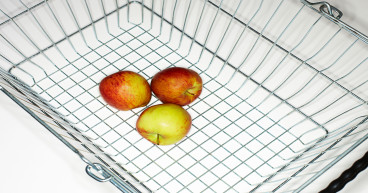MSFT 408.77 -5.4933% AAPL 227.085 -1.3103% NVDA 132.5201 -4.891% GOOGL 171.3 -1.8113% GOOG 172.8692 -1.8569% AMZN 185.36 -3.824% META 564.34 -4.6401% AVGO 168.15 -4.8064% TSLA 249.66 -3.0635% TSM 189.54 -2.5401% LLY 839.61 -0.8526% V 289.94 -0.0758% JPM 222.65 -0.7843% UNH 567.9925 0.8939% NVO 111.63 -1.4218% WMT 82.03 0.7863% LVMUY 132.48 -1.1269% XOM 117.11 0.3599% LVMHF 664.31 -1.3484% MA 501.1476 -2.4416%
General news
Labour calls on consumer regulator to investigate supermarket prices

Image Source: PAMEDIA
Labour’s enterprise spokesman has called on the Competition and Consumer Protection Commission (CCPC) to investigate what he described as potential price gouging in supermarkets as “the cost of food continues to rise alongside the profits of multinational corporations”.
Price gouging is not defined in law but is generally understood as a situation where a trader charges prices at a level that is considered unreasonable or unethical.
It is a term that is often used in situations where a trader makes very high profits as a result of a crisis or disaster situation.
“It’s time for the CCPC to investigate potential price gouging in the market to ensure that the wages of hard-pressed workers go further and for the authorities to examine how profit-taking is contributing to the inflation problem,” Labour’s Ged Nash said.
The CCPC, however, has said it is not a price regulator and does not have a role in monitoring price levels across the economy.
It said businesses in Ireland have the power to decide how much they will charge consumers for products, which means that the CCPC does not have a role in reviewing or approving price increases.
The CCPC said: “There are generally no price controls for products in Ireland, with traders free to set and change their prices for goods and services.
“Under Irish competition law, businesses are required to act independently in setting their prices and dominant companies may not use their position to directly or indirectly impose unfair purchase or selling prices or other unfair trading conditions.”
Such an approach aims to promote competition among retailers and service providers whose role is to service the demands of the consumer by sourcing and supplying products in a competitive while profitable manner.
“The CCPC takes action against traders if we find evidence that a business or businesses have co-ordinated and not acted independently in setting their prices,” it added.
Price fixing, where traders collude to fix prices at a certain level, is described as a cartel and this is illegal.
Price signalling is the illegal practice in which firms make their competitors aware that they intend to increase prices, which may encourage them to also increase rates.
The CCPC said there are also rare situations where a dominant supplier of a good or supplier could be considered to be in breach of competition law by charging excessive prices.
However, Mr Nash said a market analysis should be carried out to establish the facts behind pricing in the market as rates for certain products have expanded way beyond input costs.
He criticised what he called “greedflation” and said while the European Central Bank has tried to tackle inflation with interest rate increases, it is not taking hold of the “hyperprofits” of companies.
“Prices are increasing at phenomenal rates,” he said.
Mr Nash said he was not suggesting that supermarkets were involved in price fixing or price signalling as there was no evidence to support that.
However, he said the CCPC needed to “remain vigilant” of the potential for “tacit collusion” between competitors.
He did not accept that the CCPC had no role to play and that it should carry out a market analysis of supermarket prices.
Mr Nash said the Consumer Protection Act 2007 allows the Government to intervene on prices in extreme circumstances.
It says that if the Government is of the opinion that abnormal circumstances prevail or are likely to prevail in relation to the supply of a product, it may by emergency order declare that a state of emergency affecting the supply of that product exists – and in turn fix a maximum price.
“It’s time for Government to use the Consumer Protection Act 2007 to cap prices on everyday essential items like bread, milk, eggs and pasta, items that have soared in cost over recent months,” Mr Nash said.